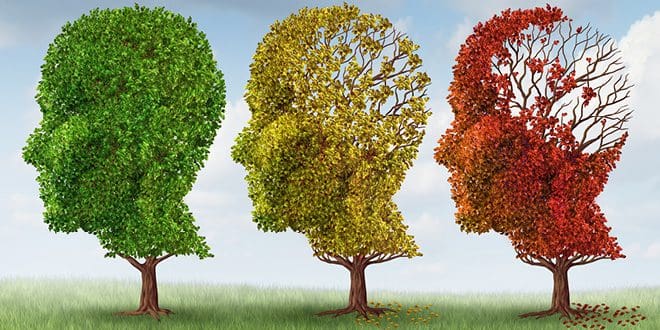By Dr Sandra Cabot
Most people worry that they may decline mentally as they get older and dementia is the greatest fear of most of my patients. We know that cognitive impairment is common in those over 80 years of age but then that’s very old and is not surprising!
Your brain is a very fatty organ and is prone to damage from free radicals, and as we age we need more antioxidants to protect it. A new study published in the journal of Psychogeriatrics 2014 online has revealed that younger age onset dementia is becoming more common.
People as young as 34 are showing signs of dementia, according to researchers at the University of NSW Australia. The prevalence of dementia is 133 per 100,000 people for people aged 45 to 65. This is higher than previous estimates of 15 to 35 per 100,000 people. Diagnosis is often delayed as doctors do not expect to find dementia in such young people.
The causes of dementia in younger people were found to be due to –
- Degenerative diseases of the brain in 43% of cases
- AIDS caused by the HIV virus in around 30% – bear in mind that syphilis can also cause dementia
- Alcohol induced brain damage in around 20%
It is interesting to theorise why so many younger people are presenting with cognitive impairment due to damaged brain cells. I think it has a lot to do with diet and lifestyle factors and the use of recreational drugs such as Ice, amphetamines and other party drugs, combined with alcohol excess cause potent damaging effects on the brain cells.
The most important nutrient for the brain is folic acid and this is found predominantly in green leafy vegetables and green herbs.
Many people consume a diet high in processed foods, fast foods and sugar and these do not nourish the brain, as they are low in folic acid, B vitamins and minerals.
To have a healthy brain you must have healthy liver function and good bacteria in the gut. A poor diet and alcohol excess damage the liver and gut.
Magnesium can help to balance the nervous system and reduce anxiety and this is found in green leafy vegetables, nuts and seeds.
Omega 3 fatty acids are essential for healthy brain cells and can be found in oily fish (sardines, mackerel, tuna, salmon, anchovies and herrings), chia seeds, hemp seeds, flaxseeds and walnuts. Most people do not get enough omega 3 fatty acids in their diet.
What are important things that can cause cognitive decline?
- Hereditary factors – know your family history
- High blood pressure which damages the arteries that supply the brain – the small arteries become hard and narrow
- Strokes causes by diseases of the cerebral arteries
- Vitamin B 12 deficiency
- Folic acid deficiency
- Diabetes – high blood sugar is very toxic to the brain cells and causes hardening of the arteries all over the body
- Obesity and lack of fitness
- Sleep apnoea
- Heavy smoking of cigarettes which damages blood supply to brain
Thus you can see that most cases of dementia are preventable.
It is vital to control high blood pressure and diabetes. If you have cognitive decline get a blood test to check your fasting levels of vitamin B 12 and folic acid and homocysteine. Homocysteine is toxic to the brain if it is too high and this can be due to a poor diet low in folic acid or can be due to a disturbance of a biochemical pathway in your body called methylation.
If you have inherited a defective variation in the gene called the MTHFR gene you cannot methylate efficiently and high homocysteine levels can result. This MTHFR gene variation can be tested for with a blood test.
If you have high blood pressure, keep your weight down and get fit and avoid sugar. Talk to your doctor about this or call my Health Advisory Service on 02 4655 8855.
Vitamin C is essential to keep your blood vessels strong and healthy thus promoting a better circulation to your brain. Vitamin C is found in citrus, kiwifruit, red capsicum and other vegetables. It is imperative to keep the blood vessels to your brain healthy and open, so that your brain gets plenty of oxygen and nutrients.
Dementia is diagnosed by a neurologist who will do am MRI Scan of your brain and cognitive and psychological testing. An MRI scan will show shrinkage of the brain and also damage to the arteries in the brain. I see a lot of patients in their 50s and 60s who show damaged arteries on their MRI scan and this can be reversed or at least improved.
Younger-onset dementia causes major social and logistical problems for the sufferer and their family. Health services for dementia are geared to older people and younger patients were often treated in aged care homes by doctors who specialise in aged care (geriatricians)
For more information see my book titled Alzheimer’s – What you must know to protect your brain









Leave A Comment